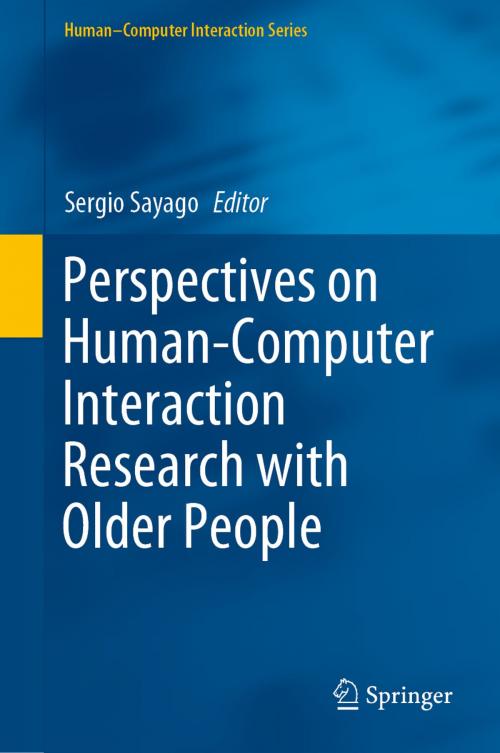Perspectives on Human-Computer Interaction Research with Older People
Nonfiction, Art & Architecture, Architecture, Design & Drafting, Computers, Advanced Computing, Programming, User Interfaces, General Computing| Author: | ISBN: | 9783030060763 | |
| Publisher: | Springer International Publishing | Publication: | February 20, 2019 |
| Imprint: | Springer | Language: | English |
| Author: | |
| ISBN: | 9783030060763 |
| Publisher: | Springer International Publishing |
| Publication: | February 20, 2019 |
| Imprint: | Springer |
| Language: | English |
This book promotes a critical reflection about the research conducted so far in Human-Computer Interaction (HCI) with older people, whose predominant perspective focuses on decline, health, and help. It introduces a new (or different) perspective, which is grounded in interdisciplinary research on older people and digital technologies.
Key elements are to (i) address topics that include, but also go beyond decline, health, and help, such as leisure, fun, creativity and culture, to delve more deeply into the role of digital technologies in multiple facets of older people’s lives; (ii) focus on doing research and designing technologies with and for older adults, and their communities, to avoid and fight against negative social conceptions of ageing; and (iii) examine older people’s life course, strengths, interests, and values, as well as their limitations and needs, to design technologies that not only help but also empower them, extending their abilities and acquiring new knowledge, beyond technology use. This perspective aims to help us better understand, design, and evaluate older people’s interactions with digital technologies in the early 21st century.
This book promotes a critical reflection about the research conducted so far in Human-Computer Interaction (HCI) with older people, whose predominant perspective focuses on decline, health, and help. It introduces a new (or different) perspective, which is grounded in interdisciplinary research on older people and digital technologies.
Key elements are to (i) address topics that include, but also go beyond decline, health, and help, such as leisure, fun, creativity and culture, to delve more deeply into the role of digital technologies in multiple facets of older people’s lives; (ii) focus on doing research and designing technologies with and for older adults, and their communities, to avoid and fight against negative social conceptions of ageing; and (iii) examine older people’s life course, strengths, interests, and values, as well as their limitations and needs, to design technologies that not only help but also empower them, extending their abilities and acquiring new knowledge, beyond technology use. This perspective aims to help us better understand, design, and evaluate older people’s interactions with digital technologies in the early 21st century.















